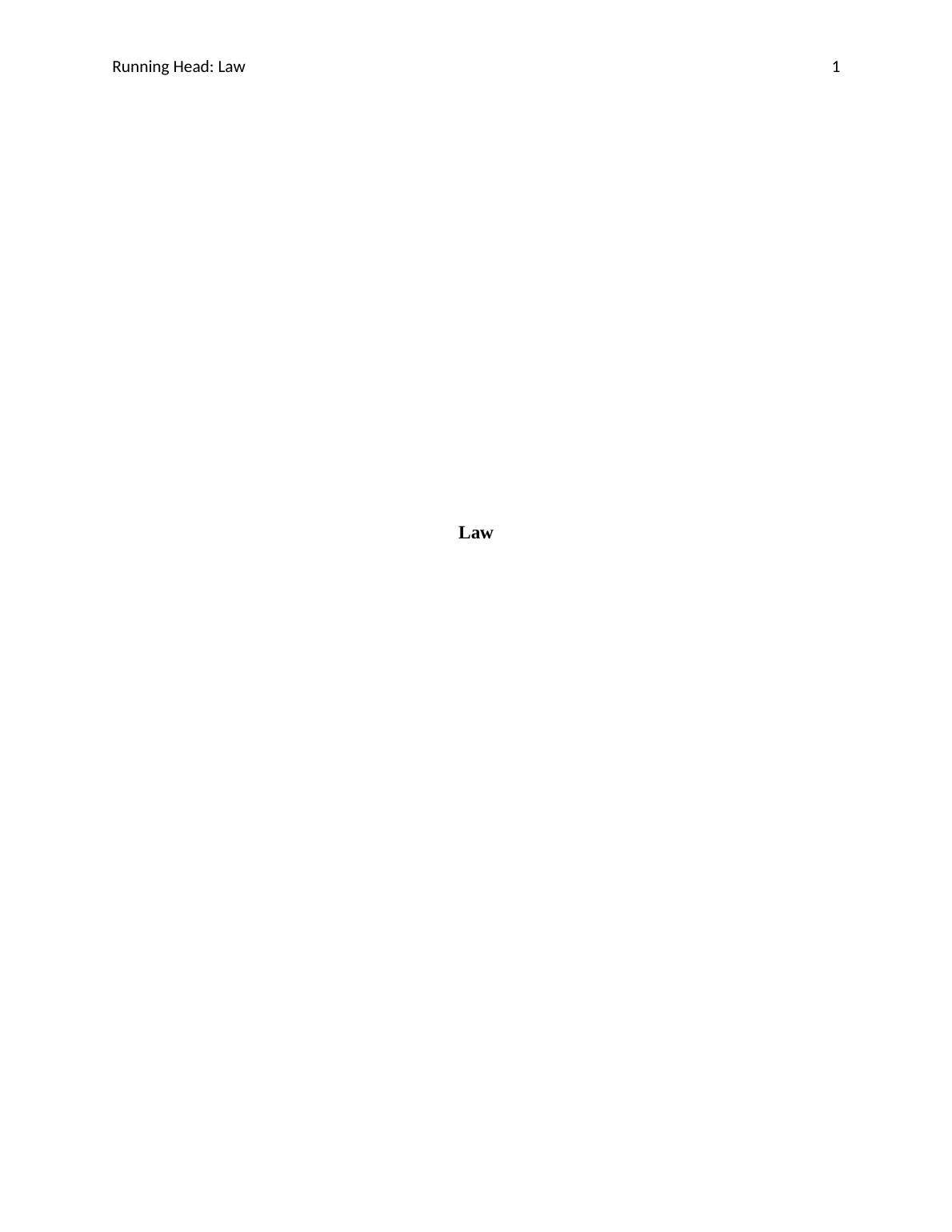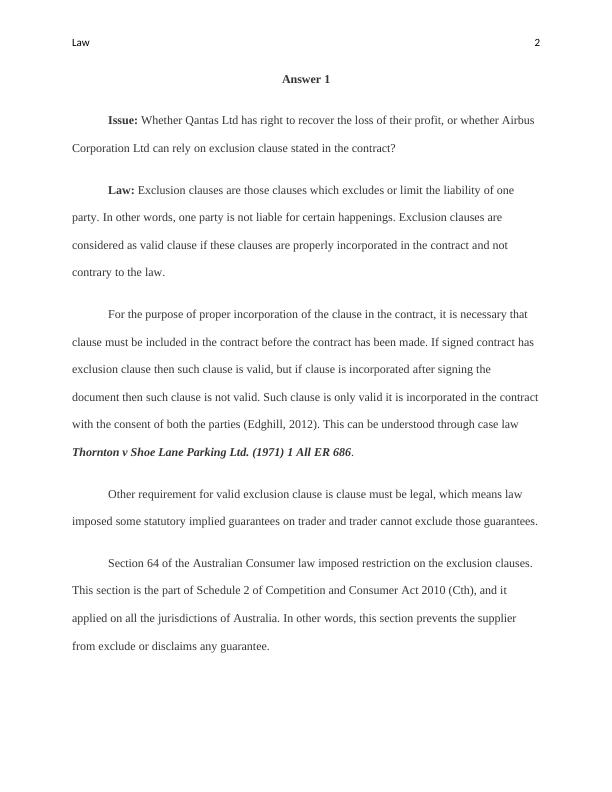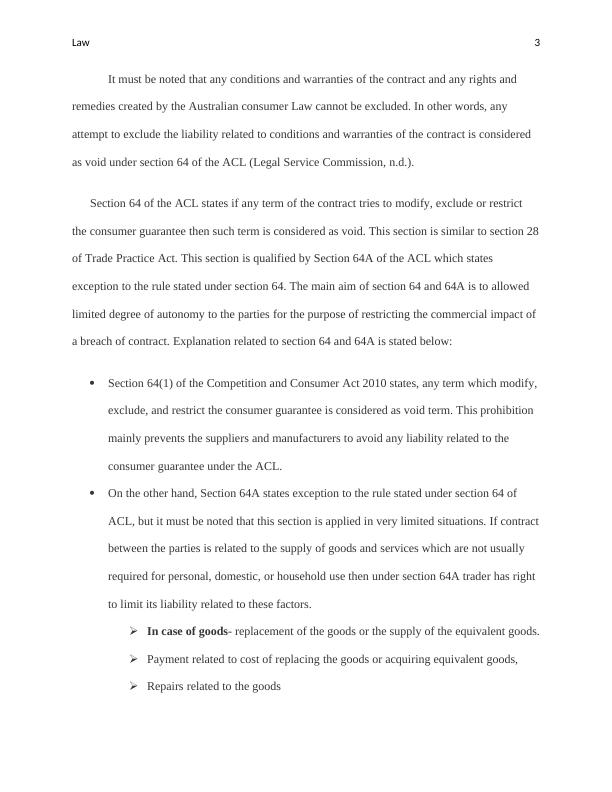Ask a question from expert
Law assignment answer (pdf)
8 Pages2036 Words319 Views
Added on 2019-11-08
Law assignment answer (pdf)
Added on 2019-11-08
BookmarkShareRelated Documents
End of preview
Want to access all the pages? Upload your documents or become a member.
MLC101 - Business Law Assignment
|5
|1322
|217
Essentials of Contract - PDF
|8
|1246
|102
(solved) Assignment on Business Laws
|6
|1496
|55
ACL Violations by Gym & Tonic: Remedies Available to Karen
|5
|1210
|51
(solved) Assignment on Law - ACL
|12
|1817
|43
Contract Law: Validity of Exclusion Clause in a Contract
|5
|893
|334


